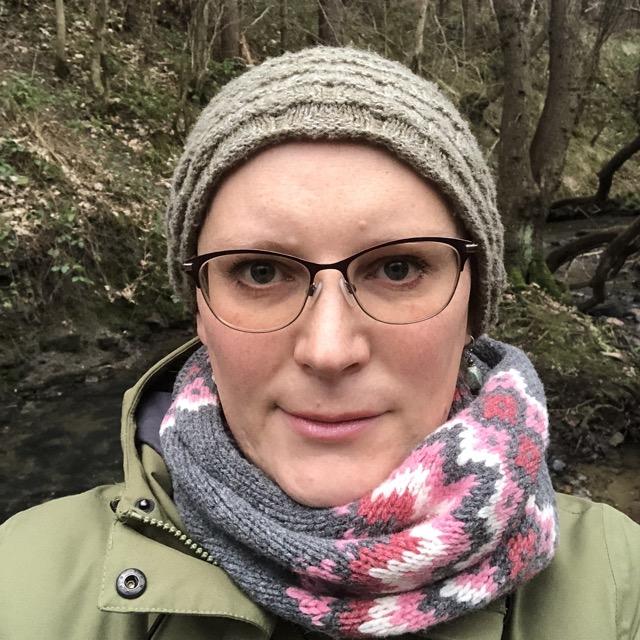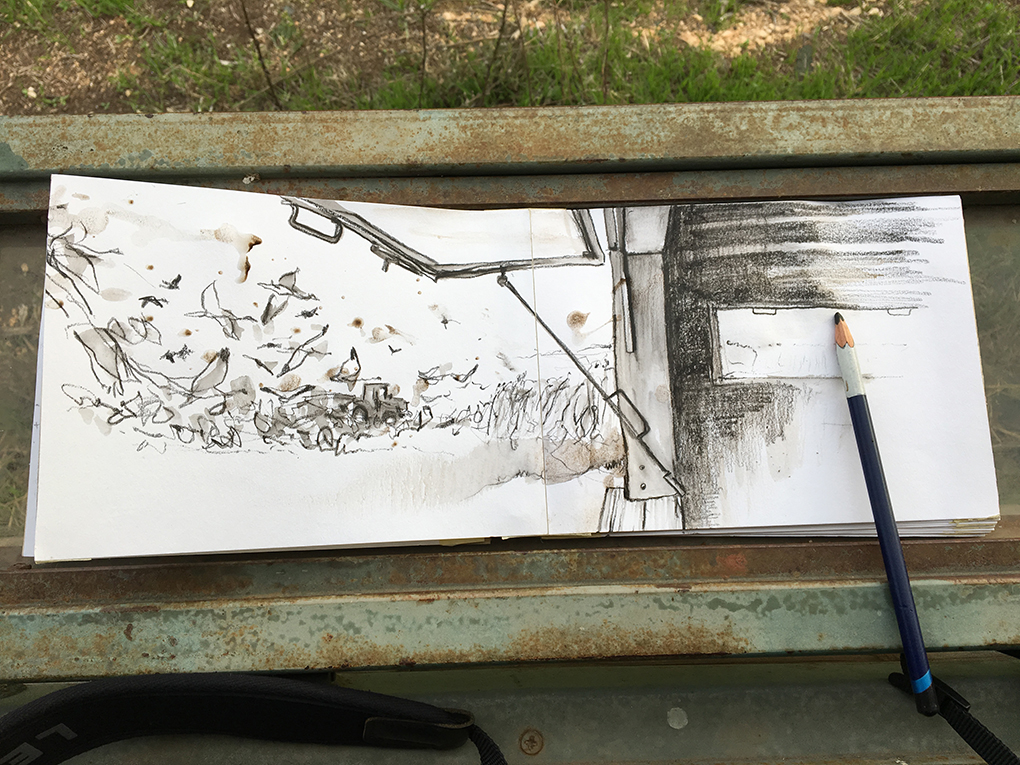Staff profile
Dr Sage Brice
Assistant Professor (Research)

| Affiliation | Telephone |
|---|---|
| Assistant Professor (Research) in the Department of Geography | +44 (0) 191 33 41832 |
Biography
Bio
My research develops ‘Trans Ecologies’ as a significant contribution to theorising the intersection of environmental geographies with social difference, asking how queer-trans readings of bodily plasticity, indeterminacy, and change can help to address the uncertainties and instabilities of accelerated planetary change. Specifically, it revolves around the proposition that conditions of ecological interdependence and mutual susceptibility might be understood not as passive states but as productive relational forces, reorienting how we think about questions of justice in relation to a range of vulnerabilities: environmental, climatic, ecological, political, social, ontological, and methodological. For example, when vulnerabilities arising from the Covid-19 pandemic elicit new modes of relation to gender and subjectivity, or - in more general terms - where a capacity for interpersonal vulnerability facilitates transformative communication and understanding across social difference.
I have an affinity for watery and fluid landscapes, and my doctoral research explored problems of identity and ecology in the Huleh wetlands, in northern Israel-Palestine. My British Academy Postdoctoral Fellowship brings an ecological perspective to studying everyday practices of gender under the pandemic conditions of Covid-19, asking how they reflect bigger social questions about the ‘nature’ of identity and subjectivity. It uses creative and collaborative methods, working with a small group of trans and nonbinary people to develop a graphic narrative output.
This research builds on substantial artist-practitioner experience in socially and politically engaged art practice, and informs extensive pedagogical experience delivering original materials for both undergraduate and postgraduate students.

Publications
Chapter in book
- Resistance without subjects: friction and the non-representational geography of everydayBrice, S. (2023). Resistance without subjects: friction and the non-representational geography of everyday. In S. Hughes (Ed.), Critical Geographies of Resistance (pp. 59-75). Edward Elgar. https://doi.org/10.4337/9781800882881.00012
- The ontopolitics of gender as transindividual relationBerlin, S., & Brice, S. (2022). The ontopolitics of gender as transindividual relation. In C. Cremin (Ed.), Deleuze, Guattari, and the Schizoanalysis of Trans Studies (pp. 9-34). Bloomsbury.
- Riding the Tide: Socially-engaged art and resilience in an uncertain futureBrice, S., & Fernandez-Arconada, S. (2017). Riding the Tide: Socially-engaged art and resilience in an uncertain future. In E. Trell, B. Restemeyer, M. Bakema, & B. van Hoven (Eds.), Governing for Resilience in Vulnerable Places. Routledge.
Journal Article
- Viral ecologies: Resurgent nature, COVID-19 and the discourse of transgender contagionBrice, S., & McNulty, F. (2024). Viral ecologies: Resurgent nature, COVID-19 and the discourse of transgender contagion. Environment and Planning E: Nature and Space, 7(6), 2343-2364. https://doi.org/10.1177/25148486241284176
- Dandelion Roots A Trans Ecology of COVID-19 VulnerabilitiesBrice, S. (2024). Dandelion Roots A Trans Ecology of COVID-19 Vulnerabilities. TSQ: Transgender Studies Quarterly, 11(4), 667-670. https://doi.org/10.1215/23289252-11421142
- Critical observational drawing in geography: Towards a methodology for ‘vulnerable’ researchBrice, S. (2024). Critical observational drawing in geography: Towards a methodology for ‘vulnerable’ research. Progress in Human Geography, 48(2), 206-223. https://doi.org/10.1177/03091325231208899
- Sharing the Field: Reflections of More-Than-Human Field/work EncountersMarr, N., Lantto, M., Larsen, M., Judith, K., Brice, S., Phoenix, J., Oliver, C., Mason, O., & Thomas, S. (2022). Sharing the Field: Reflections of More-Than-Human Field/work Encounters. GeoHumanities, 8(2), 555-585. https://doi.org/10.1080/2373566x.2021.2016467
- Trans Subjectifications: Drawing an (Im)personal Politics of Gender, Fashion, and StyleBrice, S. (2021). Trans Subjectifications: Drawing an (Im)personal Politics of Gender, Fashion, and Style. GeoHumanities : Space, Place, and the Humanities., 7(1), 301-327. https://doi.org/10.1080/2373566x.2020.1852881
- Geographies of vulnerability: Mapping transindividual geometries of identity and resistanceBrice, S. (2020). Geographies of vulnerability: Mapping transindividual geometries of identity and resistance. Transactions of the Institute of British Geographers, 45(3). https://doi.org/10.1111/tran.12358
- Situating skill: contemporary observational drawing as a spatial method in geographical researchBrice, S. (2018). Situating skill: contemporary observational drawing as a spatial method in geographical research. Cultural Geographies, 25(1). https://doi.org/10.1177/1474474017702513
- Archiving memories of changing flood risk: Interdisciplinary explorations around knowledge for resilienceMcEwen, L., Reeves, D., Brice, S. (listed as J., Kam Meadley, F., Karen, L., & MacDonald, N. (2012). Archiving memories of changing flood risk: Interdisciplinary explorations around knowledge for resilience. Journal of Arts and Communities, 4(1-2), 46-74. https://doi.org/10.1386/jaac.4.1-2.46_1
Other (Print)
- Making space for a radical trans imagination: Towards a kinder, more vulnerable, geographyBrice, S. (2023). Making space for a radical trans imagination: Towards a kinder, more vulnerable, geography. Environment and Planning D: Society and Space, 41(4), 592-599. https://doi.org/10.1177/02637758231187449

